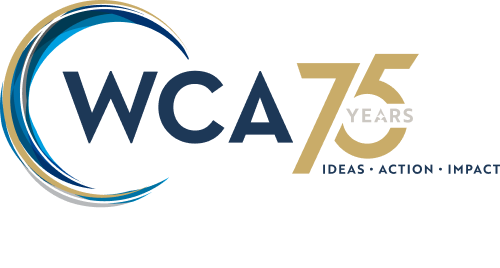Clean energy is booming in Westchester County, and with it comes new jobs needed to service the expanding energy economy.
As the state’s clean-energy economy continues to expand, job opportunities are sprouting up across Westchester in a variety of sectors, ranging from geothermal to solar to wind energy and more.
One key sign that the county is leaning green is its Bronze Certified Climate Smart Community rating — a state designation for municipalities that agree to take certain steps to tackle climate change.
A recent New York Clean Energy Industry Report notes that employment in the sustainable-energy sector has now surpassed pre-pandemic levels; it’s also one of the state’s job categories that bounced back fastest.
The November 2022 report from the New York State Energy Research & Development Authority (NYSERDA) also points out that clean-energy employment outpaced traditional energy jobs in the state in 2021. (The terms sustainable and renewable energy are technically different, but both fall under the umbrella of clean energy and are often used interchangeably).
“There’s going to be a tremendous need for more talent in the clean-energy sector. And there’s going to have to be re-skilling and up-skilling in order to service the new energy economy,” says Michael Romita, president and CEO of the Westchester County Association, a regional economic development and business advocacy organization.
Overall, New York had more than 165,000 clean-energy jobs at the end of 2021 — a 17% jump since 2015. Clean-energy installation employment saw the biggest boost, with nearly 5,200 new jobs, according to NYSERDA.
Statewide Funding
The state has recently taken several giant steps in the challenge to make clean energy viable in New York. The Cap-and-Invest program announced by Gov. Kathy Hochul in January 2023 directs the state Department of Environmental Conservation (DEC) and NYSERDA to design programs to help set a yearly cap on state pollution levels.
Its goals are linked to the 2019 state Climate Leadership and Community Protection Act (also known as the Climate Act), requiring New York to slash greenhouse-gas emissions by 40% from 1990 levels by 2030, and to cut them by no less than 85% by 2050.
George Drapeau, public affairs specialist for the Construction Industry Council of Westchester & Hudson Valley, points out another state program that will lead to a hike in clean-energy jobs: The $4.2 billion Clean Air, Clean Water and Green Jobs Environmental Bond Act passed in November 2022. It includes up to $1.5 billion for green infrastructure and renewable energy projects and may create up to 100,000 new jobs.
“Along with federal money from the infrastructure bill recently passed by Congress, this bond act will help fund a lot of project work and upgrades in our region,” Drapeau says.
Learning and Earning
Green-energy jobs can bring a paycheck with a purpose, offering employment coupled with the satisfaction of choosing a career that helps make a difference. What’s more, previous training can be valuable when seeking green-energy jobs.
“Some skills do overlap and carry over,” says Tracy Racicot, director of the Center for Adult & Community Services at Southern Westchester BOCES. “For example, there’s a big push now in green technology for heat-pump installation. [Heat pumps are] basically a reverse air conditioner, so if you’re an HVAC technician, you’d be using the same skill set.”
At BOCES of Putnam and Northern Westchester, clean-energy courses include an online program in Leadership in Energy & Environmental Design (LEED), highlighting green-building and sustainable-design practices.
They also offer an Electric Vehicle Technician course.
SUNY Westchester Community College preps students for careers in energy and other fields through its Bright Futures courses, supported through the Con Edison Power of Giving Program. The college also offers a degree in Environmental Science, plus Certified Indoor Air Quality Manager and Indoor Environmentalist classes.
Pace University features a major in Environmental Studies and Science. In addition, it’s home to the Energy and Climate Change Center, focusing on research and analysis. Pace’s law school courses include Sustainable Business and the Environment, and Wind Energy Law and Policy. Pace also hosts an annual Sustainable Business conference held by the Westchester County Association; the two also partner on a Clean Energy Portal, a searchable online business clearinghouse for clean-energy programs and incentives. (It can be found at www.westchester.org/clean-energy-guide.)
Sustainable Westchester in Mount Kisco is another go-to source; the nonprofit consortium of local county governments collaborates on sustainability initiatives. Also, the Westchester Office of Economic Development is now part of the SUNY Clean Energy Jobs Consortium, offering education and training.
Yonkers-based nonprofit Soulful Synergy trains workers for clean-energy jobs and has partnered with social services agency the Westchester Community Opportunity Program to provide free HVAC and clean-heat training. Soulful Synergy also teams up on programs with NYSERDA and The Willdan Clean Energy Academy, run by national engineering and energy solutions firm The Willdan Group.
NYSERDA provides extensive training and employment resources that include on-the-job training and internships.
When it comes to salary, pay ranges for renewable-energy jobs vary widely based on location, skills, and experience. According to the website ZipRecruiter, as of March 2023, pay ranged from about $24,000 to nearly $140,000, with the average salary just over $72,000 a year.
Local Companies Need Talent
Westchester has attracted a variety of clean-energy companies such as Brightcore Energy in Armonk, specializing in boosting energy efficiency in commercial buildings and other sites. Curtis Instruments is a leader in electric and hybrid vehicle technology, and Dandelion Energy offers geothermal heating installation; both are based in Mount Kisco.
Solar technology gained more than 1,000 workers statewide between 2020 and 2021, according to NYSERDA. Among the Westchester area’s solar firms are Sunrise Solar Solutions in Briarcliff Manor, SunBlue Energy in Sleepy Hollow, and Quest Solar in Yonkers.
“There’s going to be a tremendous need for more talent in the clean-energy sector. And there’s going to have to be re-skilling and up-skilling in order to service the new energy economy.” — Michael Romita, President and CEO, Westchester County Association
Wind technology is taking off in a big way, too; the state is developing plans for five huge offshore wind projects — the most of any state in the nation. The first is the South Fork Wind Farm, 35 miles off Long Island’s coast; it’s scheduled to launch operations later in 2023. NYSERDA expects 10,000 new jobs overall will be created from these projects.
General Electric announced in January that if demand allows, it may build two factories near Albany to make components for offshore wind turbines, leading to an estimated 1,000 construction jobs and about 870 longer-term positions.
Making History
NYSERDA’s clean-energy report found that jobs in alternative transportation — including electric, hybrid, plug-in, and fuel-cell hydrogen vehicles — had the most sector growth in New York, rising by 26% from 2019 to 2021.
Westchester County Airport was the site of a historic demonstration of the future of electric-powered air travel in February 2023, when the BLADE Urban Air Mobility company held its first New York City-area test flight of a piloted, electric vertical takeoff and landing craft.
Dubbed an EVA (for electric vertical aircraft), the six-passenger vehicle is operated by an all-electric propulsion system. It can take off and land like a helicopter, and cruise like a plane for a range of about 200 miles. The Westchester prototype was built by Vermont-based BETA Technology, which has a flight-test facility in Plattsburgh, NY.
“EVAs are going to change everything, because they’re battery-powered aircraft that are emission-free, and they’re nearly silent in flight,” says BLADE’s president, Melissa Tomkiel. “There are so many complaints everywhere surrounding airport noise, including in Westchester, and this technology solves that problem.”
BLADE is a Manhattan-headquartered global air-transport company providing regional helicopter and seaplane services, as well as medical transportation. Their current fleet is carbon-neutral, “and we’re heading toward becoming all-electric,” says Tomkiel. She notes that the EVA industry anticipates receiving FAA certification by the end of 2024, with passenger use likely launching in 2025.
BLADE already has a terminal at Westchester County Airport providing passenger service with their current air fleet. “We have Westchester-based employees in place, and we hope our footprint in the county grows as we start transitioning to electric technology,” adds Tomkiel.


